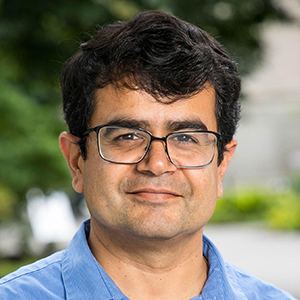Targeted delivery of drugs offers a potential to maximize their efficacy and minimize toxicity. To achieve this, drugs such as chemotherapeutics, proteins and mRNA are encapsulated in polymer or lipid-based carriers. However, upon injection in the body, these carriers face the challenge of poor blood circulation, limited targeting and the inability to negotiate many biological barriers. Biology has provided many examples of successful “carriers” in the form of circulatory cells including red blood cells, macrophages, neutrophils and T cells, among others, which routinely overcome the hurdles faced by synthetic carriers.

Samir Mitragotri,
Harvard University
We have developed “cellular hitchhiking and backpacking” approaches which involve combining synthetic carriers with circulatory cells to drastically alter the in vivo fate of the carriers as well as the cells. I will provide an overview of the principles and applications of hitchhiking and backpacking approaches for therapeutic delivery and cell therapy.
Samir Mitragotri is the Hiller Professor of Bioengineering and Wyss Professor of Biologically Inspired Engineering at Harvard University. His research is focused on drug delivery and it has led to new technologies for delivering small molecules, proteins, nucleic acids and cells. He is an elected member of the National Academy of Engineering, National Academy of Medicine and National Academy of Inventors. He is an author on over 400 publications and an inventor on over 300 patents/patent applications. He is also an elected fellow of AAAS, CRS, BMES, AIMBE, and AAPS. He received a BS in chemical engineering from the Institute of Chemical Technology, India and a Ph.D. in chemical engineering from the Massachusetts Institute of Technology.